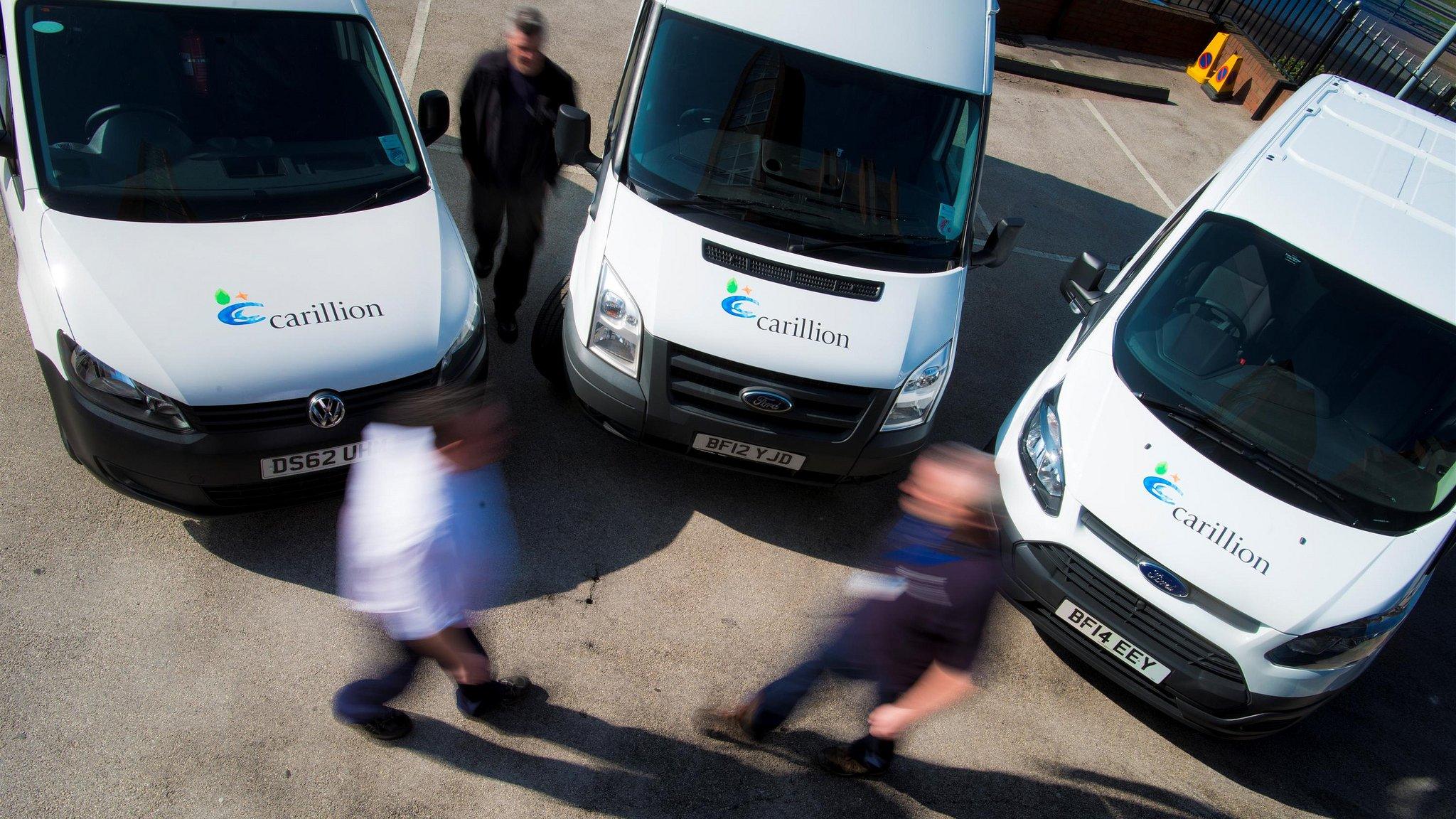Carillion: Banks call for government help
- Published
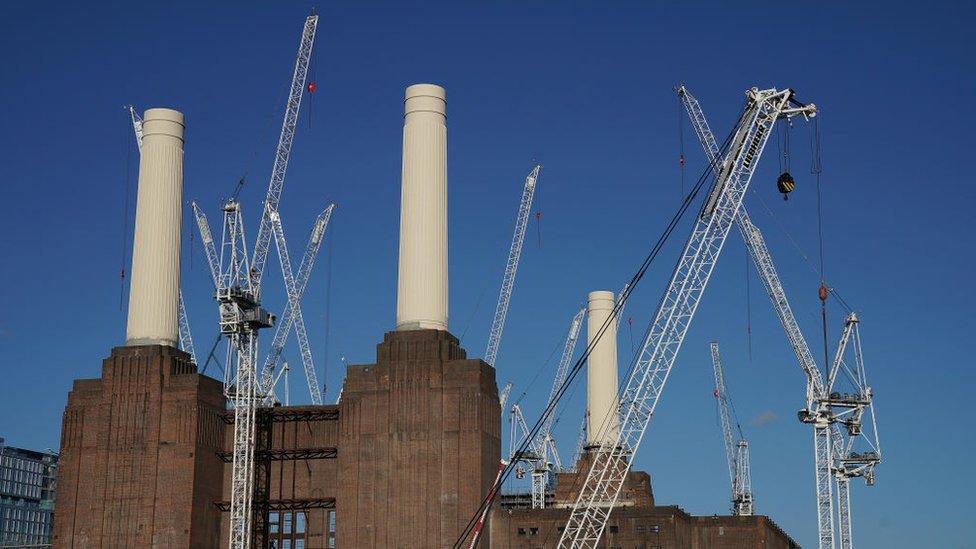
Carillion worked on the Battersea Power Station revamp
The troubled government contractor Carillion has held talks with its creditor banks this weekend and further meetings are planned for Monday, the BBC understands.
The construction firm owes £900m to RBS, Barclays, HSBC, Lloyds and Santander.
The banks may be able to show Carillion more leniency if the government is able to do its part, according to sources.
The firm's future is also being discussed by government officials.
Carillion is involved in major public projects such as the HS2 high-speed rail line, as well as managing schools and prisons.
How exactly the banks want the government to intervene is unclear.
They could want the government to offer some guarantees in case Carillion cannot pay back its debts.
Or they may want the government to take some of Carillion's key projects back into the public sector.
The TUC has called on the government to "step in" to "guarantee jobs and services".
Deputy general secretary Paul Nowak said: "Tens of thousands of jobs are now at risk, along with vital public services and major infrastructure projects across the country."
New Tory party chairman Brandon Lewis told the BBC the government was keeping "a very close eye on this".
Mr Lewis told the BBC's Andrew Marr Show that the government was "making sure all plans and contingency plans are in place".
But he refused to be drawn on whether the government would bail Carillion out.
"It's a very commercially sensitive situation so I wouldn't comment further than to say I would hope to see that the working capital that they need will be there working with their partners," he said.
Labour peer Lord Adonis, who last month quit a head of the National Infrastructure Commisson, tweeted that the government has "got questions to answer about propping up Carillion with contracts long after its problems clear. Looks like another Grayling bailout!"
Last summer Transport Secretary Chris Grayling awarded Carillion part of the contract to build HS2, a week after the company had issued a profits warning and its chief executive had departed.

Analysis: Joe Lynam, business correspondent
Carillion's banks are owed about £900m, in the form of overdrafts as well as credit card facilities and other loans.
The banks will likely show forbearance for a few weeks if a sustainable solution to this debt can be found. But they would also like the government to get involved when it comes to managing its key public contracts.
This could mean that they would need taxpayers to act as guarantor on future payments from Carillion or that the important contracts to maintain schools and hospitals be taken back in house by Whitehall officials.
The government is in a bind. Let Carillion fail and risk thousands of job losses, or bail it out and risk propping up a private company with public money - only a few months after it paid out dividends to its shareholders.

Liberal Democrat leader Sir Vince Cable has urged the government not to agree to a taxpayer-funded bailout for Carillion.
Alastair Stewart, a construction and property analyst at Stockdale Securities, said none of the solutions involving the government were "particularly palatable".
"The biggest intervention they could make is actually take a stake in the company as part of raising a large amount of capital, but they'll look back and look at the background of Lloyds and RBS," he said.
Share price plummeted
Carillion has debts of £1.5bn, including a £587m pension shortfall.
The UK's second-largest construction company employs 43,000 people worldwide, with about 20,000 of them in the UK.
It specialises in construction, as well as facilities management and ongoing maintenance.
As recently as 2016 it had sales of £5.2bn and until July 2017 its market capitalisation was close to £1bn.
Since then, its share price has plummeted and it is now worth just £61m.
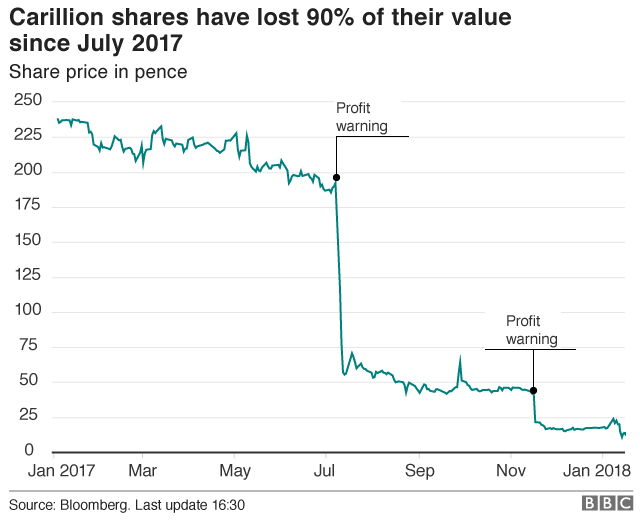
Its problems stem in part from a string of risky contracts which have proved unprofitable.
It also faced payment delays in the Middle East that hit its accounts.
It has worked on high-profile projects, including the Battersea Power station redevelopment and the Anfield Stadium expansion.
It is also the second largest supplier of maintenance services to Network Rail and maintains 50,000 homes for the Ministry of Defence, manages nearly 900 schools and manages roads and prisons.
The concern is that if it were to collapse these key public sector services could suffer a lot of disruption.
- Published15 January 2018
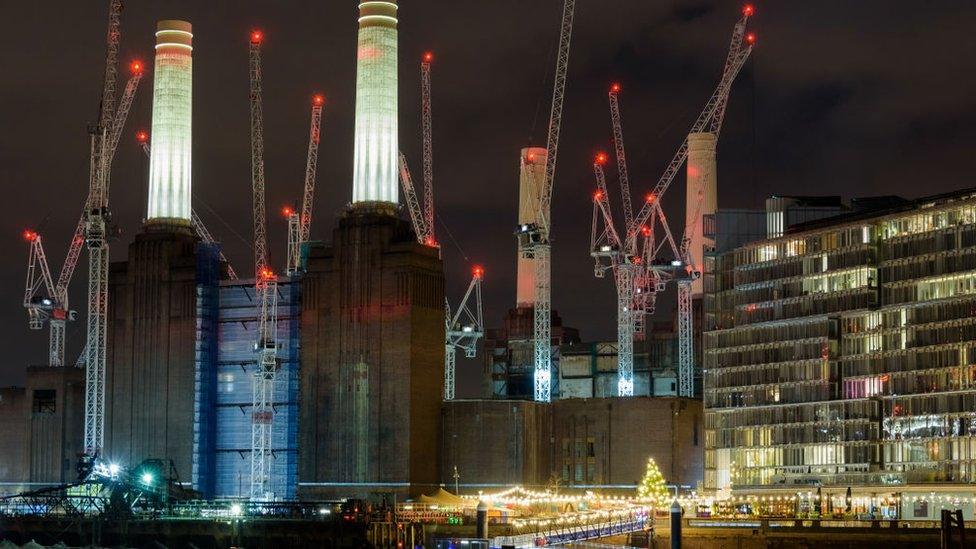
- Published12 January 2018
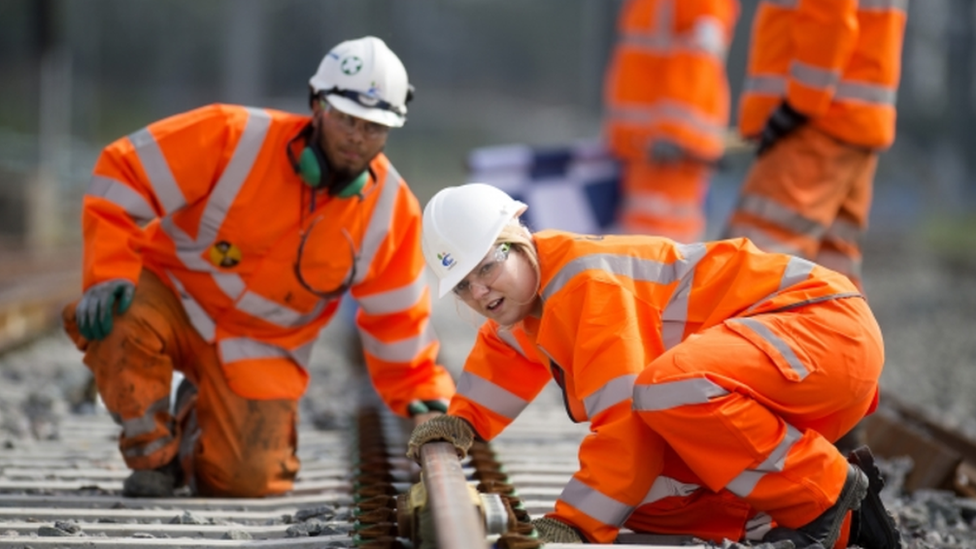
- Published7 January 2018
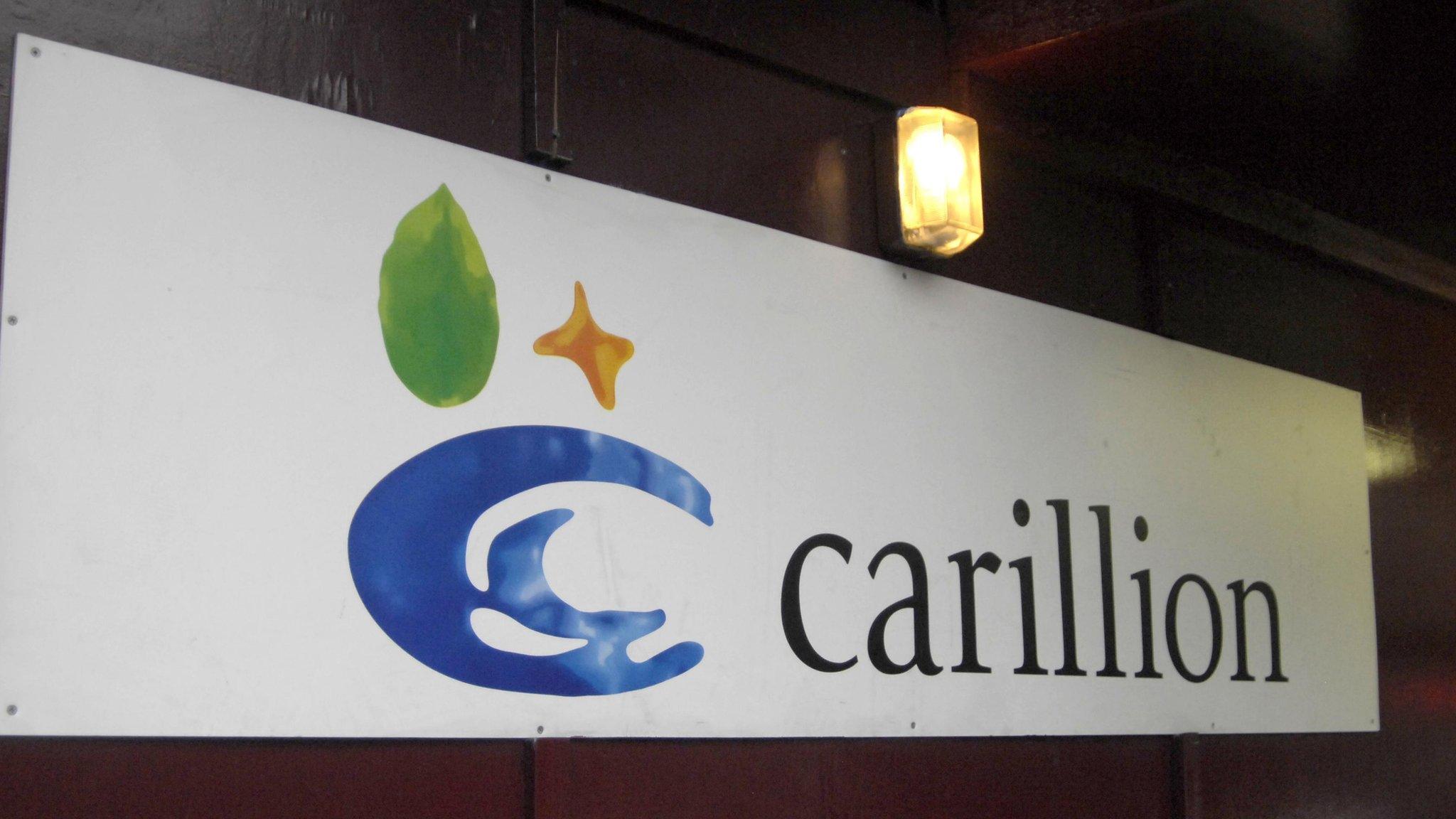
- Published3 January 2018
